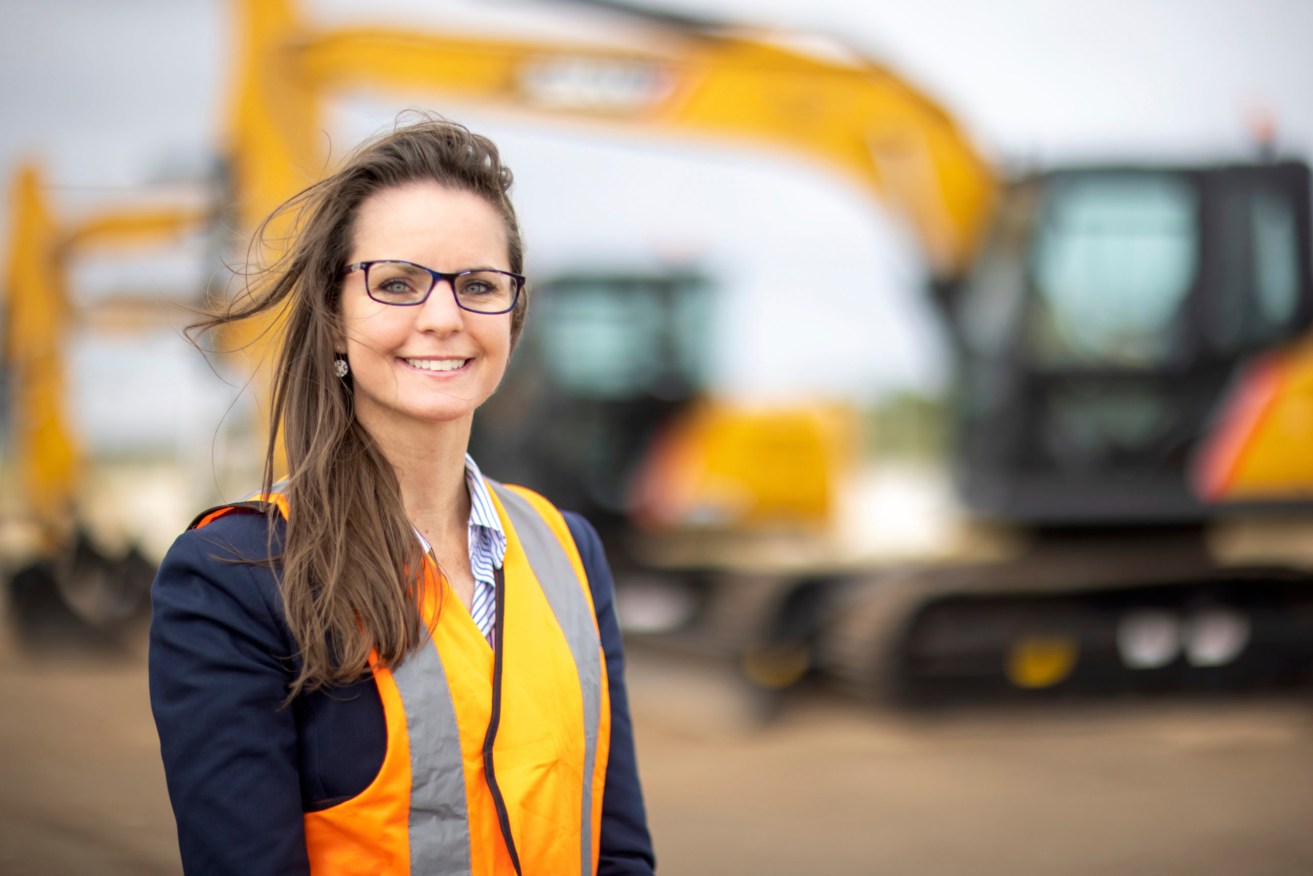Building industry crying out for workers
South Australia’s building industry needs another 10,000 construction workers in the next five years despite already struggling to fill jobs, an industry roundtable has heard.


CCF (SA) Chief Executive Rebecca Pickering on site. Photo supplied.
Concerns raised around rising costs in building standard guidelines also triggered plans for discussions with the federal small business ombudsman.
Companies and construction industry bodies called for more State Government support at the high-level roundtable with more than 25 key representatives and Small and Family Business Minister Andrea Michaels this week.
It followed increasing concerns raised about a looming jobs crisis for the industry, with Michaels saying the government was working with federal colleagues to attract more migrant workers.
State Government funding is also backing a new Born to Build ambassador program, organised by the Masters Builders SA, where construction workers visit schools to encourage more students to think about taking on a trade rather than pursuing a university degree.
Michaels said growing concern was also raised, particularly among smaller building and construction companies, about the rising cost of Australian Building Standards guidelines.
“I will be speaking with the Federal ombudsman Bruce Bilson in regards to this concern,” she said.
Businesses across the state continue to be impacted by labour shortages, as the number of South Australians now employed in construction is 8.7 per cent higher than pre-pandemic levels in March, 2020.
Building and construction businesses also told the Minister they were struggling with rules tying them to crippling financial security expectations in government contracts.
Civil Contractors Federation SA chief executive officer Rebecca Pickering said State Government expectations that 10 per cent of project costs were kept in security across the board for civil construction companies – and often for the lengths of projects taking several years – needed urgent attention.
Some companies bringing low-risk contributions to a long-term project, or whose input was at the beginning of a project, were seeing large amounts of money tied up for long periods of time, meaning companies did not have liquid funds to tender for new jobs.
“It is also hard to get loans from banks or insurances,” Pickering said.
some civil construction businesses were unable to meet loan expectations if funds were tied up on other projects.
This is the fourteenth roundtable Minister Michaels has held among 20 across the state to support developing a Small Business Strategy.
Michaels is also overseeing a statewide small business survey across sectors with about 1000 responses already received.
“Around 65 per cent of business owners are saying mental health is a challenge,” she said.




